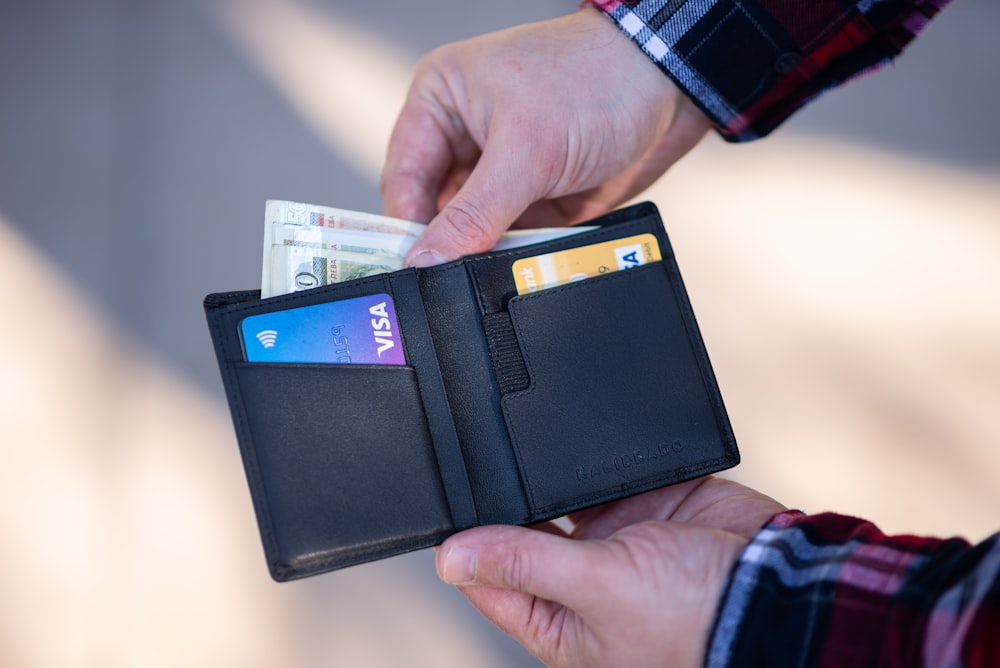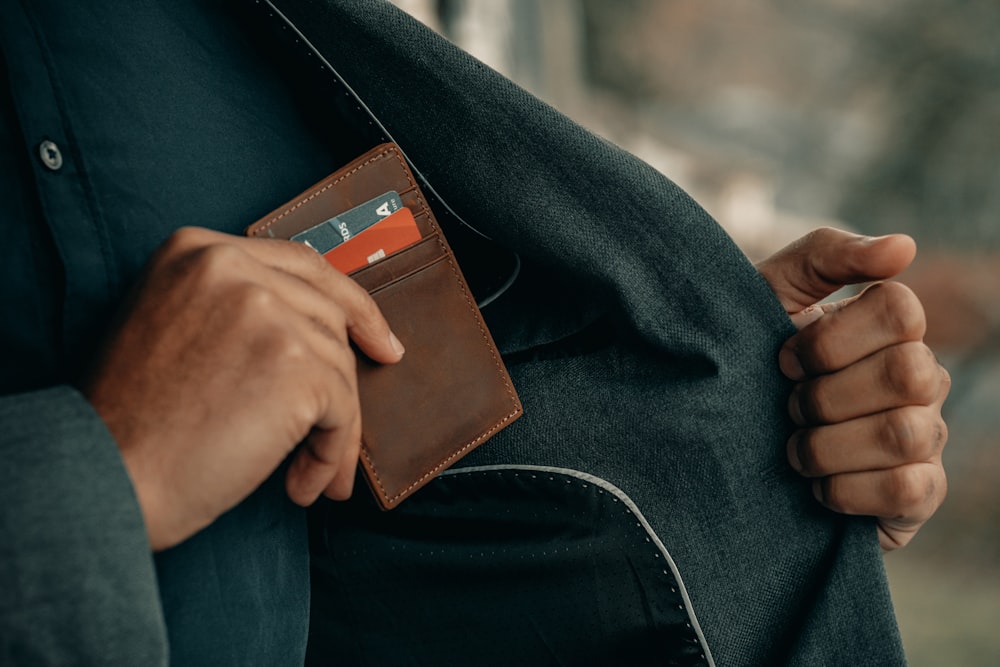In today’s digital age, your financial security is constantly at risk, and credit card scams are a prime threat. If you’ve ever worried about falling victim to a cunning scammer, you’re not alone. It’s a valid concern that millions share, but there’s good news—you can take steps to protect yourself.
Understanding the signs of credit card fraud and staying informed about how scammers operate is your first defense. With the proper knowledge and vigilance, you can spot scams before they can do any damage. Let’s dive into the savvy strategies to keep your credit safe and your mind at ease.
Educate Yourself on Common Scams
Staying ahead of credit card scammers requires an understanding of the tactics they use. Phishing scams are particularly prevalent; these involve unsolicited emails or messages that mimic reputable sources to trick you into providing sensitive information. Skimming is another method where thieves use a device on card readers to steal your credit card details.
Vishing, or voice phishing, involves scammers calling you, posing as bank officials or law enforcement, to extract credit card information. They may even fake caller ID information to appear more convincing. Online shopping frauds surge as eCommerce grows, with fake websites and sellers designed to obtain your credit card details under the guise of a legitimate transaction.
Protect yourself by:
- Never share your credit card information in response to an unsolicited communication.
- Always verify the legitimacy of an online seller or website before making a purchase.
- Be cautious about providing credit card details over the phone, especially if you didn’t initiate the call.
- Regularly check your statements for any unauthorized transactions.
Arming yourself with knowledge is your best defense. Regularly update yourself on new scamming techniques scammers might deploy. Remember, your vigilance is a scammer’s biggest hurdle.
Keep Your Personal Information Secure
Safeguarding personal information takes center stage in the battle against credit card scams. You’ve already learned how scammers can manipulate you into revealing credit card details, but the stakes are higher when your broader personal information is at risk.
Start by limiting what you share on social media. Scammers can gather information from various sources to access your accounts. Be selective about who you accept as friends or followers, and double-check your privacy settings to ensure only trusted individuals can view your posts.
Keeping your documents secure is also critical. Whether it’s bank statements, tax paperwork, or old credit cards, these should be stored safely or shredded if no longer needed. Identity theft often begins with stolen documents, so treat your paperwork like the valuable items it represents.
When creating passwords, opt for complex combinations of letters, numbers, and symbols. Avoid using easily guessable information like birthdays or addresses. Consider using a reputable password manager to keep track of different logins while ensuring each password is strong enough to defy hackers’ attempts to crack them.
Regularly update your computer and smartphone’s security software. Antivirus programs and firewalls act as a digital barrier against potential intrusions. Even the most innocuous download or app update could provide a doorway for scammers if not adequately vetted by updated security software.
How to be careful of Suspicious Email and Phone Calls
Fraudsters often use email and phone calls as their primary weapons in credit card scams. Be vigilant about unsolicited requests for your credit card details or personal information. Phishing emails may appear legitimate, mimicking the style and logos of well-known companies, but they’re designed to trick you into disclosing sensitive information.
Recognize the Red Flags:
- Emails with generic greetings such as “Dear customer” instead of your name
- Misspellings or grammatical errors
- Urgent requests for action
- Links to unfamiliar websites
The same rule of skepticism applies when it comes to phone calls – known as vishing. Be cautious if you’re pressured to provide credit card information or to verify your account immediately. Legitimate companies will never ask for your credit card details over the phone unless you initiate the conversation.
Key steps to protect yourself:
- Don’t reply to or click on links in unsolicited emails
- Verify the caller’s identity by calling the company’s official number
- Use email filters to block potential phishing attempts
- Don’t share personal information in response to an unsolicited call
Regularly monitoring your accounts is critical. Early detection of unauthorized transactions can differentiate between a simple card replacement and a complex financial disaster. Keep an eye on your statements and immediately report any irregular activity to your bank or card issuer. Remember, staying on guard is your best defense against credit card scams.
Monitor Your Credit Card Statements Regularly
Regularly reviewing your credit card statements is a critical step in scam prevention. By checking your statements, you’ll be able to identify any unauthorized charges or discrepancies quickly. It’s not enough to wait for your monthly bill; instead, take advantage of online banking to closely monitor your account activity. Many credit card companies offer mobile apps with real-time alerts to notify you of any charges the moment they occur.
Here are some practical tips to help you stay on top of your account:
- Set a weekly reminder to check your credit card activity.
- Enroll in transaction alerts to receive instant notifications.
- Review charges and compare them with your receipts.
If you spot a transaction you don’t recognize, don’t hesitate to report it immediately. Contact your credit card issuer to dispute the charge and request further investigation. In cases of suspected fraud, your card issuer can freeze your account and issue a new card to help prevent additional unauthorized charges.
Remember, consistency is critical. Monitoring your statements only sporadically increases the risk of missing out on early signs of credit card fraud. Making account review a regular part of your routine adds an essential layer of security to your financial habits. Your vigilance could be the very thing that thwarts a credit card scammer’s attempt to steal your funds.
Protecting yourself from credit card scams involves a mix of vigilance, knowledge, and the use of available tools. Through consistent monitoring and immediate action, you put yourself in a position to respond swiftly to potential threats. Keep your guard up and maintain control over your financial security by never letting down your defensive measures.
How do you use trusted websites and payment methods?
When shopping online, ensure you’re using reputable websites. Look for indicators of security, such as HTTPS in the URL and a padlock symbol in the address bar.
Here are a few steps you can take:
- Stick to well-known retailers or official brand sites.
- Read reviews and check ratings if you’re considering a new seller.
- Use payment methods that offer fraud protection, such as credit cards and reputable payment gateways like PayPal.
Shopping on secure sites minimizes the risk of intercepting your credit card information. It’s also crucial to avoid saving card details on any device or browser. Although convenient, it puts your sensitive data at risk if a breach occurs.
Moreover, use a credit card instead of a debit card for online purchases. Credit cards typically offer better protection against unauthorized transactions. You can report fraudulent activity and potentially get a chargeback if you suspect fraudulent activity.
Remember, vigilance with where and how you shop online is vital in safeguarding your financial information from scammers. Always verify the authenticity of a website before entering your credit card details, and prefer sites that offer secure, encrypted transactions.
Conclusion
Staying ahead of credit card scammers requires vigilance and a proactive approach to safeguarding your information. Remember always to be skeptical of unsolicited requests for your credit card details and to keep a watchful eye on your statements. By following the protective measures outlined, you’ll significantly reduce the risk of becoming a victim of fraud. Keep your personal information under wraps, use secure passwords, and always verify the authenticity of websites and sellers. Your financial security is in your hands—stay informed and alert to keep it intact.
Frequently Asked Questions
What are the common signs of credit card fraud to look out for?
The common signs include unexpected charges on your statement, alerts from your bank about suspicious activity, and declines of legitimate transactions due to your card being maxed out by a fraudster.
How can I protect myself from phishing scams?
Protect yourself from phishing by not clicking on suspicious links, not sharing personal information via email, and verifying the legitimacy of any requests by contacting the company directly through official channels.
What is skimming, and how can I avoid it?
Skimming is when scammers use a small device to steal credit card information during a legitimate transaction. To avoid it, regularly check ATMs or card readers for any unusual devices attached and cover the keypad when entering your PIN.
Is online shopping safe from credit card fraud?
Online shopping can be safe if you use trusted websites, check for secure payment gateways (https://), and use fraud-protecting payment methods.
How should I respond to unsolicited requests for credit card information?
Never provide credit card details in response to unsolicited phone calls, texts, or emails. Always verify the source before sharing any personal or financial information.
What measures can I take to secure my personal information online?
To secure personal information online, limit what you share on social media, use strong and unique passwords, regularly update security software, and store personal documents securely.
Why should I use a credit card instead of a debit card online?
Credit cards generally offer better fraud protection and may limit your liability for unauthorized transactions. Unlike debit cards, they are not directly linked to your bank account, reducing the risk of losing your funds in case of fraud.
How often should I check my credit card statements for suspicious activity?
Check your credit card statements monthly or review your account online weekly to spot and report any unauthorized charges promptly.




